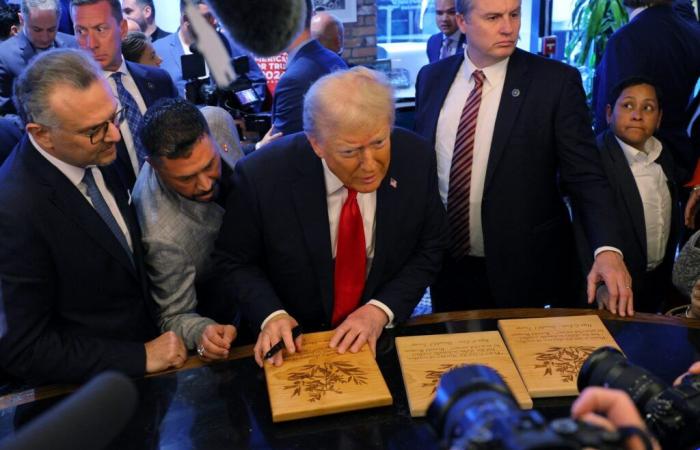
The fragile ceasefire between Israel and Hezbollah, which began on November 27, has sparked intense debate over who deserves credit for brokering the deal. President-elect Donald Trump's team claimed responsibility, attributing the development to his leadership and election victory. However, critics argue that the Biden administration and other factors were the main catalysts behind the deal.
Trump's team claims victory
Florida Rep. Mike Waltz, Trump's designated national security adviser, credited Trump's landslide victory in the election for setting the stage. “Everyone is coming to the table because of President Trump,” Waltz wrote on X. He added that Trump's victory sent “a clear message to the rest of the world that chaos will not be tolerated.”
Trump promised during his campaign to prioritize resolving conflicts in the Middle East, including long-standing tensions between Israel, Palestine and Lebanon. In July, Trump reportedly urged Israeli Prime Minister Benjamin Netanyahu to conclude military operations in Gaza before his inauguration.
Biden administration cited as key player
Contrary to the Trump team's claims, analysts and officials point to the Biden administration's direct involvement in negotiating the ceasefire. Senior U.S. envoy Amos Hochstein reportedly played an instrumental role, serving as an intermediary between Israeli and Lebanese officials to finalize the terms.
“The main players were the United States and France, with President Biden playing a key role,” said Alon Ben-Meir, a retired professor of international relations at NYU. He noted that the Biden administration was keeping Trump's team informed, as is customary during presidential transitions.
Netanyahu's Strategic Calculations
Some experts argue that Israeli Prime Minister Benjamin Netanyahu's political and military calculations were central to the ceasefire. Michael Desch, a professor at Notre Dame's Center for International Security, said Netanyahu likely recognized that a complete defeat of Hezbollah was unrealistic.
“By signing this agreement, he relieves some pressure on Israel and buys time until the Trump administration takes office,” Desch said.
A Divided Narrative
The credit debate reflects broader tensions surrounding Trump's return to power. Richard K. Betts, a professor at Columbia University, speculated that Trump may have preferred the ceasefire to take place after his inauguration to claim full credit. However, the timing could still benefit his administration if it helps Israel refocus its efforts on reaching a ceasefire agreement in Gaza.
Ceasefire Under Tension
Despite its importance, the ceasefire has already faced violations, with Israel and Hezbollah accusing each other of failings. Lebanese Parliament Speaker Nabih Berri claimed Israel had committed 54 violations, while Israeli officials reported Hezbollah attacks in the border area.
While the ceasefire is tenuous, the question of who brokered the deal remains controversial. Whether it's Trump's influence, Biden's diplomacy or Netanyahu's strategy, the deal underscores the complexities of Middle East peace efforts and the competitive narratives that surround them.





